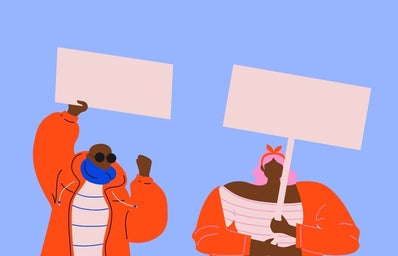Feminism is a key movement in reaching equality between women and men, and it has been around for a long time. Over time, feminism has come in waves. The first wave of feminism, which started around the mid 19th century, centered around the women’s suffrage movement, also known as a woman’s right to vote. The second wave, which hit in the 1960s, centered around radical feminism and equal rights. The third wave, beginning in the 1990s, became more intersectional, fighting for gender roles and postmodernism. Some argue that we are now in the fourth wave of feminism, which utilizes the power of social media such as the #MeToo movement, according to The New Normal.
Feminism is becoming more intersectional, but it hasn’t always been that way. For a long time, only white feminism prevailed. White feminism promotes the safety and equality of white women, ignoring the fact that women of color and other female minorities have struggles far greater than that of a white woman. Intersectional feminism is different from white feminism in that it aims to acknowledge different experiences among all women.
Listed below are African American women who led feminist movements during a white feminist era.
1. Mary Church Terrell
Terrell was a civil rights and women’s rights leader in the first wave of feminism. She was the first African American woman to earn a college degree. Terrell also helped to found the National Association for the Advancement of Colored People, or NAACP, which still exists and is advancing today. She also co-founded the National Association of University Women and was the first president of the National Associations of Commissions for Women (NACW). Through the NACW, Terrell actively advocated for women’s suffrage.
“A white woman has only one handicap to overcome – that of sex. I have two – both of sex and race. Colored men have only one – that of race. Colored women are the only group in this country who have two heavy handicaps to overcome, that of race as well as sex.”
2. Ida B. Wells
Wells, also a founder of the NAACP, was an investigative journalist during the first wave of feminism. She dedicated her career to revealing and fighting against injustices against people of color and women. As a journalist and civil rights advocate, Wells attested to the horrific lynches happening in the United States. She also actively fought for women’s suffrage, especially for women of color. She founded the Alpha Suffrage Club in Chicago.
“There must always be a remedy for wrong and injustice if only we know how to find it”
3. Anna J. Cooper
Similar to Terrel, Cooper made huge advancements in the academic world for women of color. Cooper was the fourth African American woman to earn a doctoral degree and was one of the most influential African American women scholars of her time. Her book, A Voice from the South, is a foundational text for African American feminism. She strived to give women of color a voice in a white feminist world. One way she did this was through founding the Colored Women’s League of Washington in the first wave of the feminst era.
“Let our girls feel that we expect something more of them than that they merely look pretty and appear well in society.”
These women are just three of many African American feminists during the first wave of the feminism era. Their accomplishments in academics, civil rights, women’s rights, and more set a foundation for a more intersectional feminism that we are starting to see today.


